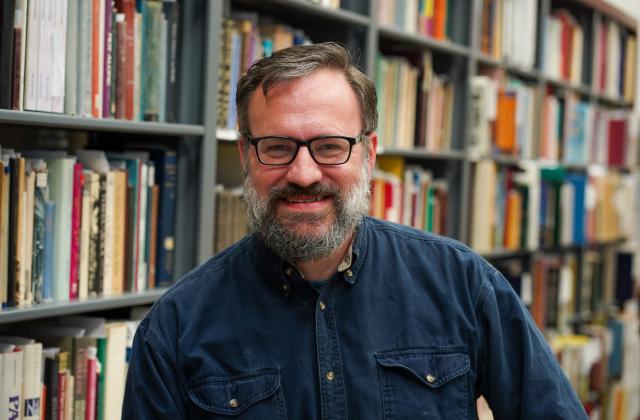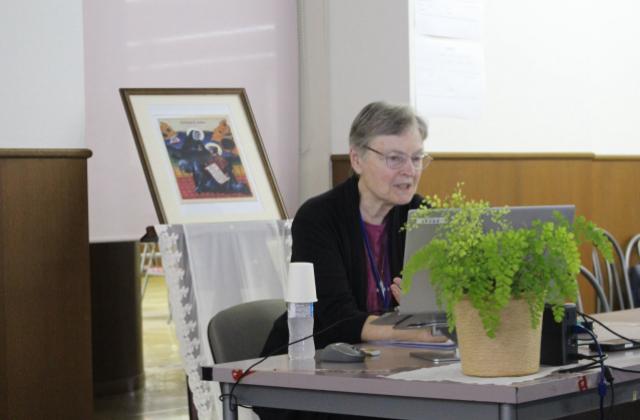"At the same physical place in the same chronological time." I sat at Mass on the Feast of Pentecost and was struck by these words of the homilist, Fr. Greg Walthrop, SJ, unpacking the readings. The disciples had gathered in fear and yet something remarkable took place. They were filled, in that first Pentecost, with a radical courage that allowed them to speak the Good News and be heard by those around them, each in her/his own language.
"To hear in our own language the words of others." These words bring comfort to me as I mourned the pain of my black sisters and brothers and feel my own grief. Our recently changed world has changed dramatically, once again.
I was editing my words for this reflection on my mobile device from the comfort of my couch, tapping into what seems to be an ever-increasingly harder-to-type little keyboard when one of my cats, little A.C.e, suddenly hopped onto my chest. He not only startled me, but made me yell at him in irritation, "A.C.e, buddy, I can’t breathe." And I wept. The weight of those words caught in my chest and sank like a stone into the pit of my stomach, already filled with stones. Those words we’ve heard before can never be heard the same. We’ve all used that phrase in various stages of anger, emotion, play or distress. Those words can no longer be heard the same, sound the same, feel the same, mean the same. They can’t. The pain is too deep, the heart too full or too empty. The song of grief must burst forth and sing.
Song was one way the students visiting my former ministry Duchesne House on their service immersion trips grappled with their grief as they unpacked their experiences of what enslaved Africans endured for centuries here in New Orleans. Our students would usually begin their first full day in New Orleans, a Sunday, by experiencing the lively celebration of a Jazz Mass with the parish community of Our Lady of Guadalupe and the International Shrine of Saint Jude.
Then they would leave, humming the closing song as they headed out for a tour of the Whitney Plantation, a research plantation that tells the story from the perspective of the enslaved, hearing the words of the very children freed from enslavement whose stories were recorded in 1936 by an African American unit of the Federal Writer’s Project. The students would then return to New Orleans in the afternoon and gather in the shadow of the Ancestor Tree at Congo Square, where enslaved Africans gathered on Sundays for a brief moment of freedom, to drum, to dance, to trade, to seek information about their stolen family members.
From Congo Square, the group would rush home to prepare for dinner and conversation back at Duchesne House with our friend and community partner, Rev. Dr. Denise Graves. The evening followed a usual pattern. Mama Denise would ask the students to recall what they saw and how they felt. Over and over again we heard the same pain from students and chaperones: I didn’t know. I had no idea. We’d hear the same questions: Why was I not taught this in school? How could anyone be so cruel? More tears. Grief. Shame. Anger. Guilt. Finally, a sense of having heard and having been heard.
Those gatherings were radical moments of grace, of putting pieces together from peoples’ stories heard and listened to in their own words. The voices of the enslaved children of the Whitney Plantation joined the voices of the privileged gathered at table were, themselves, experiences of that same Pentecost moment, gathered "in the same physical place, in the same chronological time," and hearing with radical courage, each in her/his own language, the words of racial reconciliation, "I can’t breathe." Lord, send forth your Spirit...
Note:
Duchesne House for Volunteers in New Orleans, Louisiana, a ministry of the Society of the Sacred Heart, United States – Canada Province, closed August 2019. The staff at Duchesne House affirms that letting go was difficult, but they were hopeful knowing that many will continue to dedicate their time, energy, spirit and desire to make this world a place for all people, who are, in truth, our brothers and sisters.



